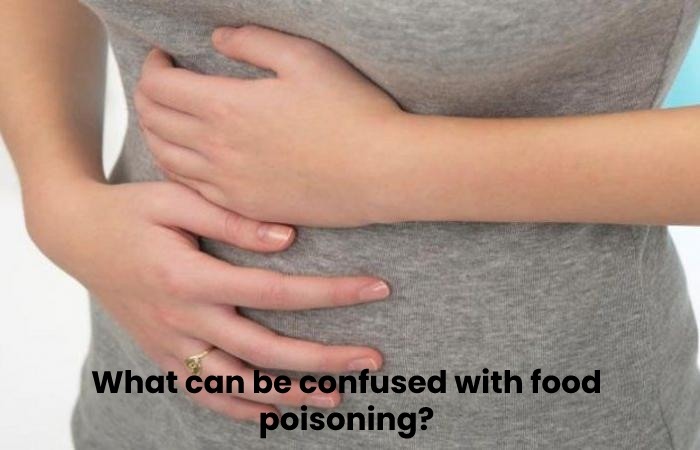Food poisoning defines as the ingestion of food or water contaminated by infectious agents (bacteria, viruses, parasites) or by a toxic substance produced by an infectious agent. However, is non-infectious, allergic, or secondary to the ingestion of chemicals such as heavy metals.
Ten symptoms of food poisoning
- Abdominal cramps or pain
- Diarrhea
- Nausea
- Vomiting
- Fever
- Headache
- Tiredness
- Chills
- A change in heart rate
- Weakness
Treatment of Food Poisoning
Most people who develop make a full and rapid recovery, with replenishment of lost water and electrolytes as the only treatment. As soon as symptoms appear, people should try drinking plenty of fluids. If fluids are well tolerated, they should go to the emergency room for intravenous rehydration.
If possible, it recommends evacuating the toxic substance from the stomach as quickly as possible. Unfortunately, most people evacuate by vomiting.
Specific treatments administer when the toxin is known.
What is Food Poisoning?
Most cases of food poisoning transpire as a result of consuming foods that contain pathogens or toxins. You cannot see, smell or taste these organisms or toxins. In addition, between 4 and 60 ° C (40 to 140 ° F), they can multiply rapidly to form millions of new bacteria in just a few hours. Digestive symptoms mainly manifest.
Most often benign, food poisoning can be severe or even fatal, particularly in fragile people (infants, the elderly). Is expected, including in developed countries. In developing countries, they represent a real public health problem.
Eating contaminated food can make us sick. Food poisoning can be dangerous in some people, especially children, the elderly, pregnant women, and people with weakened immune systems. It can lead to long-term medical complications and even death. It is why it is crucial to prevent them by handling food correctly.
Is it Food Poisoning or Gastro?
It can be challenging to tell the difference between food poisoning and gastro. There are, however, signs that can differentiate the two.
The significant difference concerns the incubation period. If your symptoms appear more than 24 hours after a meal, there is a greater chance of gastroenteritis. Indeed, the incubation period is much shorter in the case of food poisoning. In addition, gastrointestinal illness lasts longer than food poisoning. Therefore, gastroenteritis is probably also if your symptoms last more than 48 hours.
On the other hand, if several of you have similar symptoms simultaneously, it is probably.
If in doubt, it is best to consult a doctor on Livi so that he can give you the best advice.
What to eat and drink in case of food poisoning?
- Sufficient water intake (at least 2 liters per day) to avoid dehydration linked to diarrhea and vomiting. I prefer the water, sugar water, or vegetable broths. In children or the elderly, give oral rehydration solution (ORS) as soon as possible.
- Eat-in smaller amounts and more often. Favor rice, pasta, semolina, cooked carrots, white meat, bananas, pear compote. Avoid raw fruits and vegetables (except bananas), foods high in fiber (whole grains, lentils, chickpeas, and other legumes), spicy dishes, frozen dishes or drinks, milk.
- Wash hands after each bowel movement.
Food poisoning: an infection or poisoning associated with a meal
Food poisoning is an acute digestive disorder of infectious origin, with vomiting and diarrhea, which occurs in the hours following the ingestion of a meal (or a drink) contaminated by bacteria, viruses, fungi. Or toxins produced by bacteria.
What can be confused with food poisoning?
Gastroenteritis is the primary differential diagnosis of food poisoning. Still, it is due to a bacterial or viral digestive infection that can occur outside of the diet and starts 24 to 48 hours after contact. In comparison, appears in the hours following a meal (1 to 8 hours for staphylococcus, more for other bacteria).
“Chinese restaurant syndrome” refers to indications such as tension in the face, chest pain, burning sensations throughout the body, and anxiety after consuming a Chinese meal. These symptoms may be related to a hypersensitivity reaction to monosodium glutamate (MSG), a seasoning often used in Chinese cuisine. This reaction is infrequent.
What are the complications?
Most of the time is mild and goes away on its own after a day or two, without medication. But if the bacteria ingested are virulent (presence of fever, diarrhea with mucus and blood, and deterioration of the general condition), intoxication may require the intake of antibiotics. The main risk is dehydration, which can occur quickly in repeated diarrhea and vomiting, especially in frail people (infants and the elderly).


